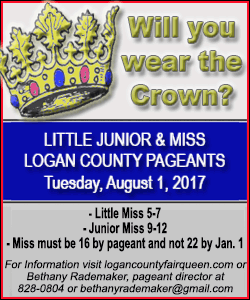|
 The court ruled 8-0 in favor of
the Portland, Oregon-based Asian-American dance rock band, which
had been denied a trademark because the government deemed its
name disparaging to people of Asian descent. The Slants
challenged that rejection as a violation of free speech rights
under the U.S. Constitution's First Amendment, and the Supreme
Court agreed. The court ruled 8-0 in favor of
the Portland, Oregon-based Asian-American dance rock band, which
had been denied a trademark because the government deemed its
name disparaging to people of Asian descent. The Slants
challenged that rejection as a violation of free speech rights
under the U.S. Constitution's First Amendment, and the Supreme
Court agreed.
The ruling likely paves the way for the Redskins to protect
trademarks covering the team's name.
The National Football League team, which took the name Redskins
in the 1930s, filed a legal challenge to a 2014 decision by a
U.S. Patent and Trademark Office tribunal canceling its
trademarks as disparaging to Native Americans. A lower court put
the Redskins' dispute on hold pending the outcome of the band's
case.
Lisa Blatt, a lawyer representing the Redskins, told Reuters the
team is thrilled with Monday's ruling because it resolves "the
Redskins' long-standing dispute with the government."

Writing for the court, Justice Samuel Alito did not mince words
in ruling that the decades-old trademark provision is
unconstitutional. "It offends a bedrock First Amendment
principle: Speech may not be banned on the ground that it
expresses ideas that offend," Alito wrote.
Band frontman Simon Tam has said he chose to call the band The
Slants to reclaim a term some consider a derogatory reference to
Asian people's eyes, and wear it as a "badge of pride." The
band's lawyers argued that the government cannot use trademark
law to impose burdens on free speech to protect listeners from
offense.
The American Civil Liberties Union, which filed legal papers
supporting the band, hailed the ruling as a major victory for
the First Amendment. ACLU lawyer Lee Rowland said government
efforts to protect minorities from disparagement instead hurt
members of that very community, in this case the Asian-American
band.
"Fortunately, today's opinion prevents the kind of absurd
outcome that results when the government plays speech police,"
Rowland said.
'MARGINALIZED COMMUNITIES'
The band welcomed the ruling.
"After an excruciating legal battle that has spanned nearly
eight years, we're beyond humbled and thrilled to have won this
case at the Supreme Court," the band said in a statement posted
to its website on Monday. "This journey has always been much
bigger than our band: it's been about the rights of all
marginalized communities to determine what's best for
ourselves."
[to top of second column] |

Patent and Trademark Office spokesman Paul Fucito
said the agency was reviewing the decision. The government
previously said a ruling favoring The Slants could lead to a
proliferation of racial slurs as sanctioned trademarks.
After the government rejected The Slants' request, Tam appealed to
the U.S. Court of Appeals for the Federal Circuit in Washington,
which in 2015 ruled that the so-called disparagement provision of
the 1946 law governing trademarks ran afoul of the Constitution's
guarantee of free speech. The government appealed that ruling to the
Supreme Court.
The federal government said in court papers that it
should not be required to approve trademarks "containing crude
references to women based on parts of their anatomy; the most
repellent racial slurs and white-supremacist slogans; and demeaning
illustrations of the prophet Mohammed and other religious figures."
In the separate Redskins case, a trademark board in 2014 canceled
the team's six trademarks at the request of Native American
activists on grounds that the team name disparaged Native Americans.
The team's appeal, also on free speech grounds, was put on hold in
the 4th Circuit Court of Appeals in Richmond, Virginia, pending the
outcome of The Slants' case.
Justice Neil Gorsuch joined the court after arguments were heard in
the case and did not participate in Monday's decision.
The Supreme Court also ruled on another free speech case on Monday,
striking down a North Carolina law banning convicted sex offenders
from Facebook and other social media services that play a vital role
in modern life.
(Reporting by Andrew Chung; Editing by Will Dunham)
[© 2017 Thomson Reuters. All rights
reserved.] Copyright 2017 Reuters. All rights reserved. This material may not be published,
broadcast, rewritten or redistributed.

 |